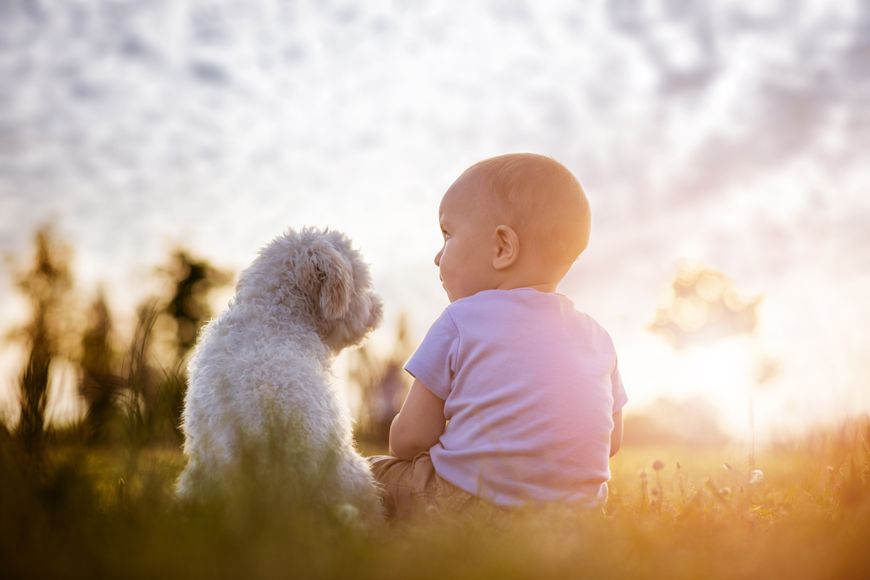Children and Pets: The Benefits of Growing Up With Them
Are pets good for our children?
7 September 2017
Editor

Pets are our collective best friends – no adult or child can deny that. And we’re not only talking about dogs; humans are now keeping the most exotic animals as pets, including scorpions, bearded dragons, and most shockingly: the hissing cockroach. Talk about taking exotic to a whole new level!
Apparently, our obsession with keeping animals as our little pets dates back to 10,000 BC. Unsurprisingly, given how much we love them, dogs were our first and favourite pets from the very beginning. All hail 'Team Dogs'!
We even go as far as to get our kids pets, even when they're a toddler or young children. Maybe it’s because we unconsciously trust animals right away, and so we trust them with our children. Some even argue that keeping a pet teaches toddlers moral values.
But where does science stand on pet-and-human-child relationships?
Experts have been studying the consequences of keeping a pet as a child for nearly a decade now, but despite that, arguments and testimonies on the topic are still fairly scant.
However, one study led by researcher Megan K. Mueller of the Cummings School of Veterinary Medicine at Tufts University gave us some interesting perspective on the matter.
Muller found that teenagers who had pets developed higher levels of commitment, and the higher that level was, the higher their score on measurements of emotional connectedness on a general basis. Muller explained that bonds created with pets lead to adapting and maintaining better social skills and relationships
.
And from a medical perspective, kids who grow up with pets at home tend to have lower risk of developing common allergies and asthma. Playing with animals also helps lower blood pressures. As if we didn’t know that already.
And considering the technology-controlled era we live in, having a pet encourages children to go out and play outside more, in comparison to kids who adopt iPads as pets.
Taking care of a pet also puts children on the road less travelled to responsibility, because it implies and encourages a "parent role". Kids with pets also displayed improved impulsive control and self-esteem.
.gif)

























.png?itok=SvZPqMHH)




.png?itok=uB2ieOR7)












